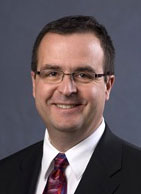A House Agriculture Committee field hearing in South Dakota on the 2012 Farm Bill featured a lot of testimony about ethanol.
 POET Vice President for Commercial Development Scott Weishaar testified that the ethanol industry has become a legitimate threat to Big Oil and Washington deserves credit for envisioning that future when it created positive policies such as the Renewable Fuels Standard.
POET Vice President for Commercial Development Scott Weishaar testified that the ethanol industry has become a legitimate threat to Big Oil and Washington deserves credit for envisioning that future when it created positive policies such as the Renewable Fuels Standard.
“With your help, we can continue this progress,” he said. “We have the natural resources, the ingenuity and the technology to reach our nation’s goal of 36 billion gallons of renewable fuel produced per year by the year 2022.”
He specifically asked the lawmakers to take four actions will help achieve that goal:
1. Increase the base blend allowed in today’s standard vehicles from 10 percent to 15 percent ethanol.
2. Mandate that all new vehicles purchased in the U.S. are flex fuel.
3. Provide incentives for installation of blender pumps, which can dispense a wide range of ethanol blends and allow greater choice for consumers.
4. Support cellulosic development through loan guarantees, a long-term extension of the cellulosic ethanol tax credit and incentives for farmers to offset risk in providing new biomass feedstock.
A panel of farmers at the hearing also stressed the need for actions to keep the ethanol industry growing in the United States. Gary Duffy, president of the South Dakota Corn Growers Association, said, “Along with renewing VTEEC, overcoming the blend wall is critically needed to create new markets and providing jobs across Rural America.” Growers Rod Gangwish of Shelton, Neb. and Steve Mast of S.D., also mentioned the need for continuing the tax incentives and increasing the blend rate.
Approximately 175 members of the agriculture community from South Dakota and surrounding states attended the hearing, which was hosted by Rep. Stephanie Herseth Sandlin. Opening statements from the hearing can be found on the House Agriculture Committee website.

